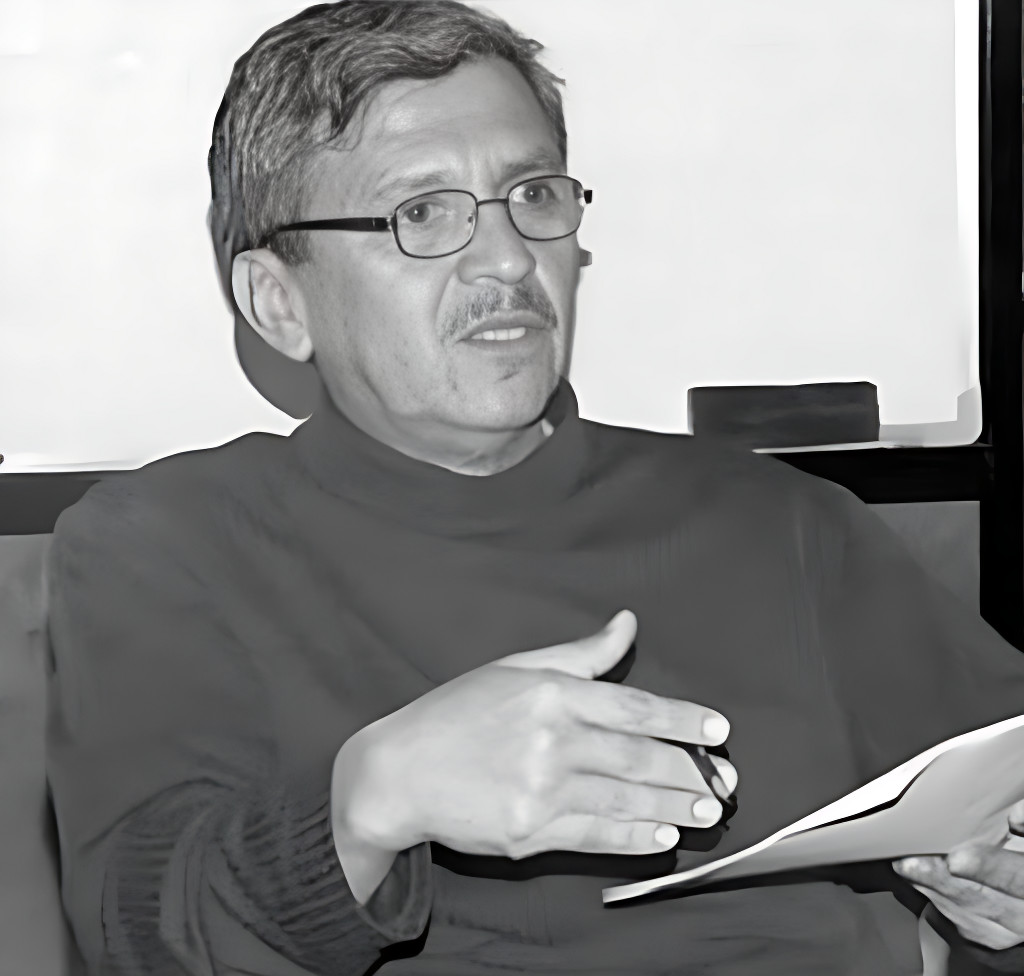Roy Sigüenza (Portovelo, El Oro Province, Ecuador, 1958) is an Ecuadorian poet known for his homoerotic themes and transforming ordinary life into settings for intimate encounters. While his poetry often favors brevity and simplicity, he occasionally incorporates stylized language and references to other gay writers from Europe and the U.S. Within Ecuador’s poetic scene, Sigüenza has pioneered a new lyric voice, openly writing about marginalized sexual experiences, influencing a generation of poets. His candid, confessional style has established him as a literary rebel in the country.
Early Life and Education
Roy Sigüenza was born in 1958 in Portovelo, a small mining town in the El Oro province of Ecuador. His early life in this historically rich region would later influence his work as both a poet and a chronicler. Sigüenza completed his primary and secondary education in his hometown, and he later attended the Pontificia Universidad Católica del Ecuador in Quito, though he did not complete his university degree. His educational experiences were shaped by his deep interest in literature, sparked by early exposure to poetry in school, where he participated in literary events and was encouraged by his teachers.
Personal Life
Although Sigüenza is a private individual, aspects of his personal identity have significantly shaped his work. His poetry often explores themes of desire, particularly male desire, and the complexities of homosexual love, making him a prominent voice for LGBTQ+ representation in Ecuadorian literature. He has remained connected to his roots, living and working in Portovelo for much of his life. His love for his hometown is apparent in his works, both as a poet and a chronicler, where he has documented its history and cultural significance, particularly its past as a mining town.
Literary Career
Roy Sigüenza is regarded as one of Ecuador’s leading poets, with a career spanning over three decades. His first published work, Cabeza quemada (1990), marked the beginning of his prolific output. Over the years, he has published several influential poetry collections, including Tabla de mareas (1998), Ocúpate de la noche (2000), La hierba del cielo (2002), Cuerpo ciego (2005), Cuatrocientos cuerpos (2009), and Apuntes de viaje a Nurdu (2014). His poems, characterized by their sensuality, emotional depth, and exploration of male eroticism, are celebrated both in Ecuador and across Latin America.
His work has been translated into multiple languages, including English, Portuguese, and Catalán, and his poetry has been featured in numerous anthologies of Ecuadorian and Latin American literature. In addition to his poetry, Sigüenza has published notable works of non-fiction, such as ¿Y vieron bailar el charlestón a la ‘Chiva’ Marina? (1991) and Portovelenses S.A. (1999), reflecting his deep interest in the historical and cultural heritage of Portovelo.
Themes and Style
Sigüenza’s poetry delves into complex emotions and relationships, often set against the backdrop of Ecuador’s landscapes. His exploration of homoeroticism and desire stands out as a recurring motif in his work, providing an intimate yet universal look at love and longing. His style is marked by vivid imagery, mythological references, and a lyrical treatment of the body, nature, and history. Works like Piratería from Tabla de mareas have become iconic in Ecuadorian literary circles, influencing younger generations of poets.
In his later collections, such as Habilidad con los caballos (2020), Sigüenza expands on themes of fraternal love, family, and nature, reflecting a broader and more contemplative approach to his craft. His poetry often employs techniques like alliteration, synesthesia, and metonymy, creating a rich, sensory experience for readers.
Cultural Contributions and Chronicling
Beyond his poetry, Sigüenza is also known for his efforts to preserve and document the history of his native Portovelo. He has collaborated on various art and historical projects related to the mining heritage of the town, curating exhibits and contributing to the cultural memory of the region. His work as a chronicler complements his literary achievements, highlighting his versatility as a writer.
Legacy and Impact
Sigüenza’s contributions to Ecuadorian literature are widely recognized, and he is considered one of the country’s most influential poets of the last few decades. His candid exploration of male desire and his ability to intertwine personal and historical narratives have cemented his place in Ecuador’s literary canon. In 2020, he was a candidate for the prestigious Premio Nacional Eugenio Espejo, Ecuador’s highest literary honor, in recognition of his impact on the nation’s cultural landscape.
Sigüenza’s poetry continues to resonate with both national and international audiences, and his work remains a crucial part of contemporary Ecuadorian literature. As a poet writing from the periphery—both geographically and thematically—he offers a unique voice that challenges societal norms while celebrating the beauty of the human experience.
Works
Poetry
- Cabeza quemada (1990)
- Tabla de mareas (1998)
- Ocúpate de la noche (2000)
- La hierba del cielo (2002)
- Cuerpo ciego (2005)
- Abrazadero y otros lugares (2006)
- Cuatrocientos cuerpos (2012)
- Manchas de Agua (2016)
- Habilidad con los caballos (2020), a collection of all his works up to 2020.
Non fiction
- ¿Y vieron bailar el charlestón a la “Chiva” Marina? (1991)
- Portovelenses S.A. (1999).
His works have been included in the following anthologies:
- Estafeta del viento, antología de la poesía ecuatoriana del siglo XX, Visor, Madrid (2006)
- La astillada sombra de Sodoma published by the Ministry of Heritage and Patrimony, a compilation of homo-erotic poetry by five Ecuadorian authors (2013)
- Tea Party 4: Muestra dinámica de poesía Latinoamericana (2016)

